仁爱版 | 八年级英语(上册)第一次月考试题含答案
作者:未知 时间:2021-09-15 阅读:( )
仁爱版八年级上册第一次月考试题
第I卷(选择题)
一、单选题(每小题1分,共10分)
1.The New Silk Road will offer a good _______ for more nations to communicate.
A.chance
B.habit
C.question
D.price
2.As soon as I heard the news that I passed the driving test, I felt _____ at once.
A.angry
B.relaxed
C.afraid
D.nervous
3.Our geography teacher told us to _____ more information about our city and share it next week.
A.find out
B.keep away
C.turn off
D.use up
4.—We can’t enter the room. I can’t find my key.
—Is it possible that you ________ it at home?
A.left
B.fixed
C.managed
D.designed
5.The Chinese saying “A tree can’t make a forest” tell us that is very important in a football match
A.ability
B.decision
C.teamwork
D.experience
6.—Do you like swimming?
—Yes, swimming is a good way _______ fit.
A.keep
B.to keep
C.keeping
D.keeps
7.–Did Kate _______ your birthday party yesterday?
–No, she didn’t. But she _______ us for dinner.
A.join; took part in
B.join; joined
C.take part in; joined in
D.take part in; joined
8.I don’t like the color of the skirt. Please show me _______ one?
A.other
B.another
C.the other
D.more
9.There _______ a sports meet in our school. I will be _______ the long jump.
A.will have; in
B.will be; on
C.will be; in
D.will have; on
10.-Would you mind ____ here? I`m sorry about that. I'll go somewhere else.
A.no smoking
B.not smoking .
C.no smoke .
D.not smoke
二、完形填空(每小题1分,共10分)
Hello, my name’s Tina. This boy is my 11 Henry. I’m his sister. We love 12 and we often go to the school sports club. Doing sports is good for 13 health. And I 14 it is also a good way to make friends(交朋友). I like 15 . It’s interesting. I play it three times a week(星期). I 16 five tennis balls and two tennis bats. And I have some books 17 tennis. But Henry doesn’t like playing tennis. He thinks it’s 18 . He likes basketball. He is good at 19 it and he is on the school basketball team(队). 20 about you? Do you love sports?
11.A.cousin B.brother C.father D.friend
12.A.sports B.school C.family D.classes
13.A.his B.my C.their D.our
14.A.see B.ask C.think D.thank
15.A.baseball B.basketball C.tennis D.soccer
16.A.have B.like C.say D.spell
17.A.in B.for C.under D.about
18.A.nice B.difficult C.welcome D.fun
19.A.playing B.meeting C.doing D.asking
20.A.When B.Who C.What D.Where
三、阅读单选(每小题2分,共40分)
A
How do you feel when you teacher asks you to work on a group project with other student? Do you like to work together with others or work alone?
The Programme for International Student Assessment, or PISA, carried out a survey of student's ability to work together in groups. They found that students who do well on tests by themselves are also likely to be better at working with other people. This finding was true for many countries. Students in Japan, South Korea, Finland and Canada, where test scores are high, also did well in working together to solve problems.
But this was not the case for every country. Chinese students, who have high scores as well, displayed just average collaborative (合作的)skills. "One reason might be that Chinese parents and teachers focus too much on grades," said Zhao Zhongxin, former vice president of the Chinese Family Education Association. "Students have a lot of exam pressure and they see schools as places for competition." "However, collaborative skills are very important for preparing students for today's society." he added. "Luckily, more Chinese parents and teachers are realizing the importance of this and are thinking of ways to help students improve this skill."
Another interesting finding from the PISA survey was that girls can be better than boys at working together. They said girls show more positive attitudes (态度)to wards relationships, which means they are more willing to listen to other' opinions.
PISA also found that the classroom environment can influence how well students collaborate. In classes where there are a lot of activities that require communication such as class debates, students might have better attitudes towards collaborating.
21.The PISA did the survey to find out the students' ability to____________.
A.work with other people
B.get high scores on tests
C.solve difficult problems
D.make plans for projects
22.What can we know from the findings of the survey?
A.Boys are better at working with others than girls.
B.Students who do well on tests are worse at working with others.
C.Collaborative skills are less important than scores for students' futures.
D.The classroom environment can influence students' ability to work together.
23.What do Chinese teachers and parents think of working together now?
A.They like it a lot.
B.They can't stand it.
C.They think it's important.
D.They think it's unnecessary
24.What can be done to improve students' ability to work together according to the passage?
A.Giving students high scores on every test.
B.Helping students to get used to exam pressure.
C.Making girls work with girls rather than boys.
D.Arranging more communicative activities in class.
25.What's the passage mainly about?
A.The popularity of PISA across the world.
B.Chinese students' ability to work with others.
C.The findings of a survey about working together.
D.The difference between boys and girls in working together.
B
Streetball is a city game. People play it on playgrounds and in gyms around the world.
Usually only one side of the court is used in the streetball, but the rules of the game are almost the same as basketball games. The number of players in a game may be only 2, and it is called one-to-one.
Sometimes there are also two teams of five players each. It is easy for you to join a streetball game. You only need to go to an outdoor court. If there are some teams playing, and they agree to let you take part in, then you have a chance to join any team.
Streetball is a very popular game in the world, and it is very popular with the young people. Some cities in the United States even have streetball programs on TV. It is said(据说) that this is a good way for young people to keep away from troubles such as crimes(犯罪) and drugs(毒品).
26.Where do people usually play streetball?
A.On the hill.
B.In the classroom.
C.On playgrounds.
D.In the water.
27.The rules of streetball games are almost the same as _______ games.
A.baseball
B.football
C.volleyball
D.basketball
28.What does the underlined word “troubles” mean in Chinese?
A.麻烦 B.荣誉 C.诱惑 D.纠缠
29.Why do people say the streetball game is good for the young people?
A.Because it is very popular.
B.Because it can be played by two people.
C.Because it can make them strong.
D.Because it can keep them from some troubles.
30.What can we know from the passage?
A.It’s not easy to join a streetball game.
B.The streetball game is only for good players.
C.The streetball is very popular with young people.
D.There are many programs on TV about the streetball game all over the world.
C
More and more people around the world are joining in dangerous sports. Some people climbed the highest mountains; some traveled into unknown parts of the world; some sailed small boats across the largest sea. Now some people begin to look for new excitement.
Bungee jumping (蹦极) and motorcycle racing (摩托车赛) are quite dangerous sports. Bungee jumping only lasts for a few minutes or even seconds. You jump from a high place, about 200 meters above the ground, and there is a rubber band (橡胶带子) tied to your legs. When you jump down, the rubber band pulls you up. About 2,000,000 people around the world have tried bungee jumping.
Why do people join in these dangerous sports? Some scientists say that it is because modern life has become safe and it is not interesting. In the past, people lived in danger. They had to go out and look for food, and life was like a fight but was interesting.
Many people think that there is little excitement in life. They live and work in safe places, buy food in shops, and there are doctors and hospitals to look after them if they become ill.
根据短文内容,选择正确答案。
31.People like to join in dangerous sports because _______.
A.they have a lot of free time
B.they can go to the hospital if they are hurt
C.they need excitement
D.they don’t need to look for food
32._______ is not a dangerous sport.
A.Climbing the highest mountains
B.Playing table tennis
C.Traveling into unknown parts of the world
D.Sailing small boats across the largest sea
33.In bungee jumping, you _______.
A.jump up as high as you can
B.jump down with a rubber band tied to your legs
C.jump down without a rubber band
D.jump to the ground
34.In the past, people lived in danger because _______.
A.the living condition (生存条件) was poor
B.there was no doctor or hospital
C.there were many dangerous animals
D.all of above
35.Which is NOT true?
A.Everyone’s life is interesting.
B.Many people live and work in safe places.
C.Many people buy food in shops.
D.People can go to see the doctors when they become ill.
D
Nick, 13, is tall and strong. He is good at running. Two weeks ago a new student came. His name is David. He is thin and short. He plays soccer well, and he can run very fast. Larry told Nick about it. Of course, Nick did not believe it.
“Why not have a race with him?” said Larry.
“Good idea!” said Nick. “I’ll have a race with him after school.”
After school, Nick went to the playground. He did some warm-up exercises for half an hour, and got ready for the race. He was sure that he could win it. Larry had to take part in a club activity that afternoon, so he could not watch the race between Nick and David.
That evening Larry went to see Nick. They began to talk about the afternoon race. Nick’s grandmother heard them in the next room. She came in and asked, “Which place?”
“The second place,” answered Nick.
His grandmother was very happy to hear that, and asked, “Which place did David win, then?”
“The last but one.”
36._______ is NOT mentioned(提到) in the passage?
A.Nick
B.David
C.Larry
D.Nick’s teacher
37.Nick did not believe Larry’s words because _______.
A.David is often ill
B.David is short and thin
C.David is a new student
D.he does not know David at all
38.Larry did not watch the race because he had to _______.
A.take part in a club activity
B.do some warm-up exercises
C.see his grandmother
D.prepare for his birthday party
39.The underlined part “The last but one” means “_______” in Chinese.
A.第二名
B.最后一名
C.倒数第二名
D.第三名
40.From the passage, we can know _______.
A.David was Nick’s friend
B.David is good at running
C.Nick won the race
D.Nick was very happy
第II卷(非选择题)
四、完成表格(每小题2分,共10分)
Ai Fukuhara (福原爱), the Japanese table tennis star, was born on Nov. 11, 1988. She started playing ping-pong when she was three. At that time, she was too small. She couldn’t see over the tabletop (桌面). She had to stand on boxes to play against adults (成人) in exhibition (展览) matches.
Now she is a very famous player. But she still works very hard and she practices for five hours a day during the weekdays after morning school lessons and eight hours a day at the weekends.
In May, 2003, Fukuhara made the quarterfinals (四分之一决赛) of the World Championships.
At the age of 15, she was the youngest player in Japan at the 2004 Olympic Games. She joined the Liaoning Team in 2005. "I hope I can learn from my Chinese teammates and improve (完善) my preparation.” said Ai Fukuhara.
根据短文内容,完成表格。
|
Name |
Ai Fukuhara |
Birthday |
Nov. 11, 1988 |
|
Nationality |
41. |
Job |
ping-pong player |
|
Career |
joined 42. in 2003 |
||
|
joined 43. in 2004 |
|||
|
joined 44. in 2005 |
|||
|
Word or phrase to describe her |
45. |
||
五、情景交际 根据情景补全下面对话。(每小题2分,共10分)
A: Hello! Li Ming!
B: Hi! Zhang Jun. 46.?
A: I’m going to the library to return the books.
B: 47.?
A: Yes. I think I will be free this Sunday.
B: There will be a basketball game in the gym and I have two tickets.
48.?
A: Yes, I’d like to. 49.?
B: It will begin at 3:00 on Sunday afternoon.
A: 50.?
B: Let’s meet outside the gym at 2:40 p.m. this Sunday.
A: OK. See you then.
B: See you.
六、用所给单词的正确形式填空(每小题1分,共5分)
51.There ________ (be) two concerts at Qixing Square next week.
52.It is too late. I ________ (agree) that we can get there on time.
53.Who ________ (give) us a talk on the computer in two days?
54.His father ________ (fly) to Beijing next week.
55.I want to know if he ________ (be) back tomorrow.
七、书面表达(共15分)
56.要点:大卫是我的同班同学,他十三岁,来自南京,他又高又强壮,他喜欢篮球,是篮球俱乐部成员之一,放学后常和我打篮球,他经常在电视上看篮球比赛,他最喜欢的篮球运动员是姚明。他也喜欢读书,我和他经常去学校图书馆,图书馆里有许多有趣的书。(70个词左右)
________________________________________________________________________________________________________________________________________________________________________________________________________________________________________________________________________________________________________________________________________________________________________________________________________________________________________________________________________________________
参考答案及word打印版
***Wish you good luck!***
需要咨询老师,打印领取步骤:
家庭辅导面临难题:
1、双职工家庭没有充足的时间和精力辅导。
2、并不能对孩子进行全方面的辅导,甚至到了高年级,没有能力辅导。
或许宝爸宝妈们需要的是一个智能助手——奇速通英语学习机!
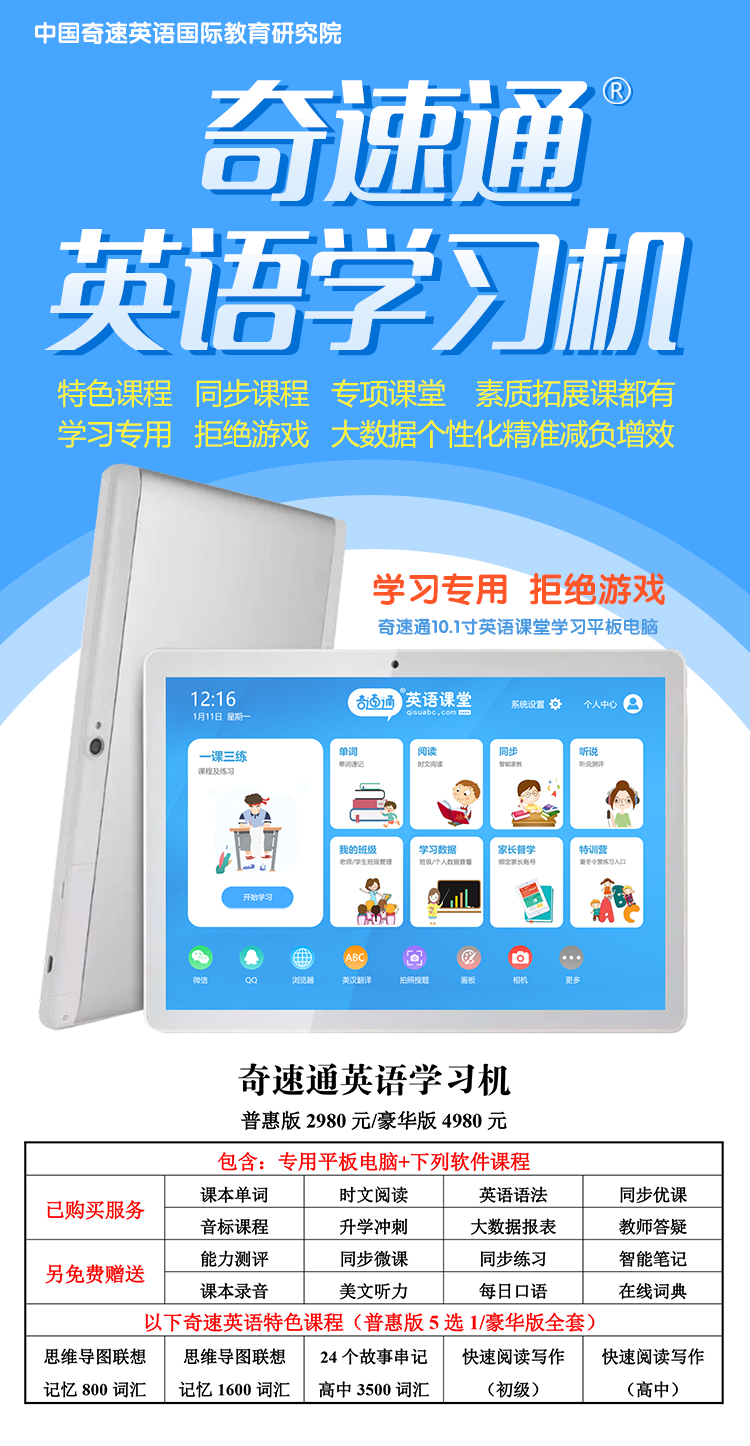
需要咨询老师,打印领取步骤:


小学初中段:
1.词汇演讲口才拓展训练营(线上课程/线下冬令营)
2.中级英语阅读素养训练营(线上课程/线下冬令营)
3.英语时文分级阅读(软件+月刊)
高中段:
1.高中一本小说24个故事速记3500词汇(线上课程/线下冬令营)
2.高中快速阅读写作营(线上课程/线下冬令营)
3.英语时文分级阅读(软件+月刊)
【温馨提醒】奇速英语线上营,线上学习可全免费参加下期线下冬夏令营,也可以咨询老师18818013973(微信同号)
-

高考英语200组同义替换词完整版
(80)人喜欢 2025-12-27 -

中考英语150组高频同义替换词
(173)人喜欢 2025-12-27 -
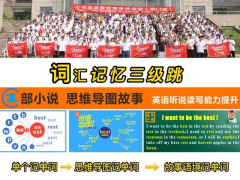
寒假规划好,英语跑在前!南宁、长春、泉州奇速英语冬令营,开启高效提升模式
(131)人喜欢 2025-12-25 -
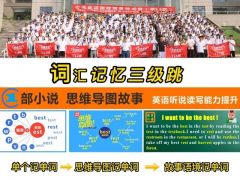
升学倒计时!哈尔滨、济南、温州奇速英语冬令营,帮孩子把英语短板变优势
(184)人喜欢 2025-12-25 -
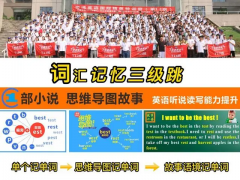
寒假超好玩!合肥、福州、厦门奇速英语冬令营,英语提升so easy
(128)人喜欢 2025-12-25 -
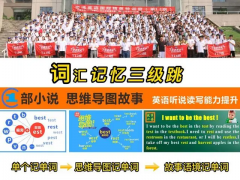
不止提分!宁波、昆明奇速英语冬令营,给孩子受益一生的学习能力
(132)人喜欢 2025-12-25 -
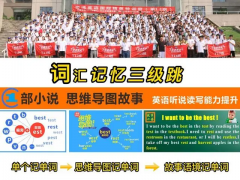
这个寒假超“燃”!东莞、青岛、沈阳奇速英语冬令营,让孩子主动爱上说英语
(67)人喜欢 2025-12-25 -
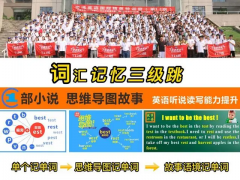
抓住寒假黄金期!南京、长沙、郑州奇速英语冬令营,让英语成为孩子的加分项
(189)人喜欢 2025-12-25 -
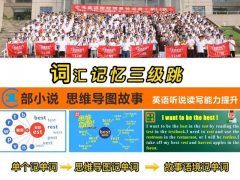
打破英语学习魔咒!武汉、西安、苏州奇速英语冬令营,重塑孩子的学习自信
(185)人喜欢 2025-12-25 -
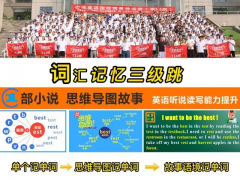
寒假不虚度!成都、重庆、杭州奇速英语冬令营,让孩子带着英语优势开启新学年
(148)人喜欢 2025-12-25

奇速英语时文阅读全国代理商招募:乘政策东风,

奇速英语时文阅读全国代理商招募:乘政策东风,
时文精读与故事记单词,这是我用过的英语成绩提

暖冬筑梦,英启新章——奇速英语冬令营,让每个

暖冬筑梦,英启新章——奇速英语冬令营,让每个

不负暖冬,英你闪耀——奇速英语冬令营,解锁孩

不负暖冬,英你闪耀——奇速英语冬令营,解锁孩

不负暖冬,英你闪耀——奇速英语冬令营,解锁孩

不负暖冬,英你闪耀——奇速英语冬令营,解锁孩

不负暖冬,英你闪耀——奇速英语冬令营,解锁孩

不负暖冬,英你闪耀——奇速英语冬令营,解锁孩

不负暖冬,英你闪耀——奇速英语冬令营,解锁孩

不负暖冬,英你闪耀——奇速英语冬令营,解锁孩

不负暖冬,英你闪耀——奇速英语冬令营,解锁孩

不负暖冬,英你闪耀——奇速英语冬令营,解锁孩

暖冬启智,英领成长 —— 奇速英语冬令营,让孩

暖冬启智,英领成长 —— 奇速英语冬令营,让孩

寒假超车正当时,奇速英语冬令营让孩子与优秀并

冬藏锋芒,英绽新程 —— 奇速英语冬令营,解锁

冬藏锋芒,英绽新程 —— 奇速英语冬令营,解锁
